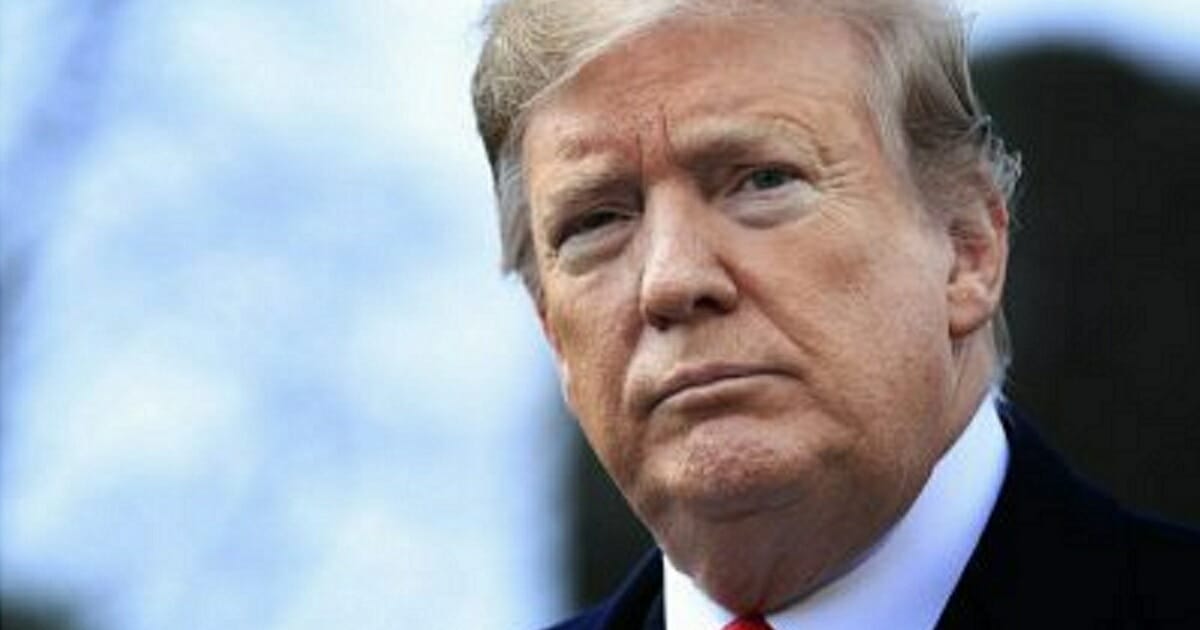
Trump To Award Posthumous Medal of Honor to Iraq War Hero
An Army staff sergeant who saved three soldiers from the blast of an Iraqi suicide bomber by turning himself into a human shield will be memorialized when President Donald Trump presents the service member’s family with the Medal of Honor, the nation’s highest military award for bravery against an enemy.
Wednesday will be the eighth time Trump presents the honor.
Staff Sgt. Travis Atkins, 31, of Bozeman, Montana, was trying to subdue the insurgent in June 2007 when he realized the man was attempting to detonate a bomb strapped to his body. Atkins then covered the bomber’s body with his in a selfless act that officials said spared three soldiers. He was on his second tour of duty in Iraq and overseeing a 15-soldier squad at the time of his death, one month after he was promoted to staff sergeant.
Here’s how the Department of Defense described Atkins’ action:
“On June 1, 2007, Atkins’ unit was doing route clearance in the town of Abu Samak, southwest of Baghdad, when they noticed two suspicious men trying to cross the road they were securing. Having heard reports that there were insurgents nearby, Atkins and the soldiers in his Humvee yelled at the pair, who started acting erratically.
Atkins had his Humvee pull over. The staff sergeant tried to search one of the men, but he resisted, so the two started fighting. That’s when Atkins realized the man had a suicide vest under his clothes. A short while later, the insurgent found the trigger.
Without pausing, Atkins bear-hugged the man from behind, threw him to the ground and pinned him there, shielding his fellow soldiers who were only a few feet away.
The bomb went off.
Atkins died from the blast, but his quick thinking and selflessness saved the lives of three other soldiers, one of whom shot and killed the second insurgent before he could detonate another explosive vest.”
Atkins’ initial award, the Distinguished Service Cross, was upgraded to the Medal of Honor after a Defense Department review. His son, Trevor, and parents will represent him at a White House ceremony Wednesday afternoon.
Trump can recognize individuals for a variety of contributions to society, including to the arts, the humanities and to science and technology. But the Medal of Honor is the one Trump, who did hot serve in the military but advocates for service members and veterans, regularly gives out.
“America is the greatest force for peace, justice and freedom the world has ever known because of you and people like you,” Trump said at the October ceremony for retired Marine Sgt. Maj. John Canley , who, at age 80, is the most recent medal recipient.
“There are very few. There are very few. Brave people, but very, very few like you, John,” Trump said.
Canley’s heroism during the Vietnam War included twice scaling a hospital wall in view of the enemy to help extract wounded Marines.
At an earlier ceremony, Trump said Medal of Honor recipients are a godsend.
“Our nation is rich with blessings, but our greatest blessings of all are the patriots like John and all of you that just stood, and, frankly, many of the people in this room — I exclude myself, and a few of the politicians, who, like John, carry our freedom on their shoulders, march into the face of evil, and fight to their very last breath so that we can live in freedom, and safety, and peace,” he said before presenting the medal to the widow of John A. Chapman.
The Air Force sergeant was critically wounded and died in 2002 while trying to rescue a Navy SEAL in Afghanistan.
Trump asked past Medal of Honor recipients attending the August 2018 event to stand and be recognized.
The seven medals awarded so far have recognized gallantry during World War II, Vietnam and the war in Afghanistan, including two posthumous honors. Wednesday’s award will be the first Trump gives to a service member who fought in Iraq.
While presidents have the final say in who gets the Medal of Honor, the process involves many others at different levels of the service.
The process takes years, including strict time limits for making an initial recommendation and awarding the medal itself, and can vary depending upon the circumstances of each case.
Cases work their way up the chain of command at the Pentagon to the service secretary and defense secretary. Both have authority to disapprove of a recommendation.
Once the defense secretary approves, the president — as commander in chief — makes the final call.
Exceptions sometimes are made to the time limits, as in the case of Canley, who personally saved more than 20 Marines during combat in one the Battle of Hue in 1968, of the Vietnam War’s longest and bloodiest battles.
As the years stretched into decades, some of the Marines who fought alongside Canley pushed for the Oxnard, California, resident to receive the medal.
After reviewing the case, then-Defense Secretary Jim Mattis agreed in December 2017 that Canley deserved the honor.
Trump then signed legislation waiving the time limit on awarding the medal.
“To me, it wasn’t really about me,” Canley said in a telephone interview. “It was about those young Marines that I had the pleasure of leading in combat.”
The Western Journal has reviewed this Associated Press story and may have altered it prior to publication to ensure that it meets our editorial standards.
Truth and Accuracy
We are committed to truth and accuracy in all of our journalism. Read our editorial standards.
Advertise with The Western Journal and reach millions of highly engaged readers, while supporting our work. Advertise Today.











